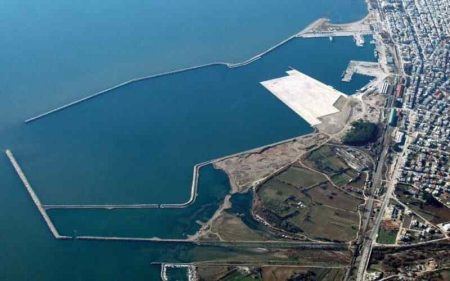For the past five years, all Greek governments have consistently cut wages and pensions and introduced taxes. None has avoided this rule.
On the contrary, there were few growth initiatives that would be in the position to improve employment and create new wealth.
No privatizations took place and no public assets were take advantage of in order to mediate the consequences of the crisis and recession.
For some particular and incomprehensible reason Greek politics prefers to cut wages and pensions or invent new taxes, rather than take advantage of the state assets. Any such attempt is treated as “selling off” and is abandoned under pressure from various reactions.
Unfortunately the Greek state assets are endless, mostly underused and in case unprotected and up for plundering from all sorts of trespassers.
The case of the beaches is a notable example. Endless kilometers of coastline are reserved by a cowardly state that can neither protect nor take advantage of its property.
A slew of laws, regulations and attitudes prevent and avert taking advantage of such an interesting and high-value asset.
About a year and a half ago an attempt was made to change the relevant legislation, in order to create the necessary circumstances for a mild and controlled development of the huge prospects of the endless coastline and beaches.
That legislative initiative provided procedures that allowed the exploitation of 5% of the coastline by tourist investments, capable of upgrading the existing tourist destination and showcase untapped zones.
The bill never went through Parliament as the reactions of small and big interests averted the vote. It was treated as the greatest evil, an initiative of catastrophe and not an opportunity to invest in our troubled economy and a source of revenue for our bankrupt state.
There are, however, examples of countries that do this exact thing. Neighboring Italy has already began the controlled development of its coastline, allowing the right to purchase to business ventures making tourist investments, which in turn increase employment, improve the coastline, respect the environment and boost the value of the land.
The bad thing in our case is that there is major international interest, capable of making profound – for Greek standards – investments.
It should be noted that for every euro used to buy land another three go towards reconstruction and adapting. One can imagine the job placements and overall benefits of such an investment activity extended throughout the country. In some respect, the moderate, selective and organized exploitation of the coastline would change the country, making it a dynamic and fully competitive tourist destination, capable to ridding it from the crisis and even the debt.
Then again, as we said before, Greek politics prefers to cut wages, pensions and introduce taxes more than anything, rather than confront the petty interests of partisan clientelism.
Antonis Karakousis





